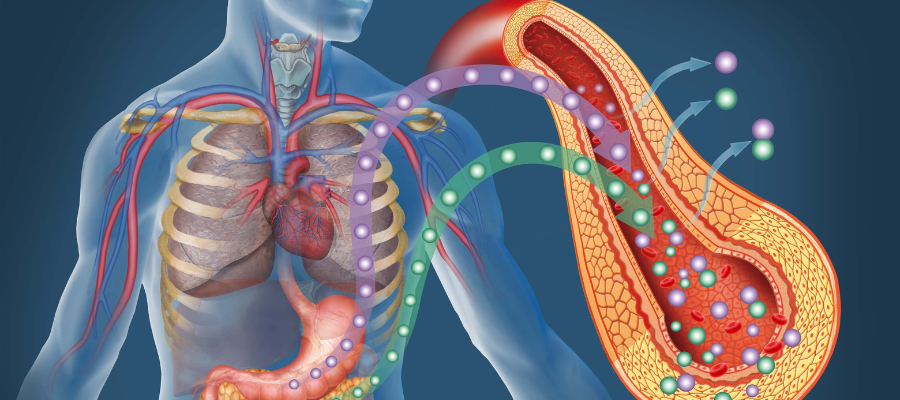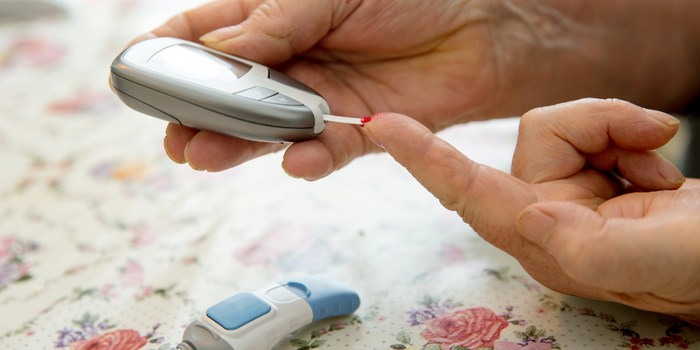What is Type 2 Diabetes?
Symtoms, Risks and Prevention

Type 2 two diabetes is a type of diabetes that can develop unpredictably and is relatively less severe than Type 1. It's more common than Type 1, but it affects adults and children. But, if not managed properly, it can lead to serious health complications like heart disease or kidney failure.
Type 2 Diabetes is a condition that primarily affects the body's ability to handle blood sugar. It occurs when the body either doesn't produce enough insulin or doesn't respond well enough to insulin—a hormone that helps the body use glucose (blood sugar).
Glucose is the main source of energy for the cells in your body and is derived from food. When glucose enters your body, it interacts with insulin. Insulin acts like a key that opens up your cells so glucose can pass in and be used as energy.
If you have type 2 diabetes, however, either your pancreas doesn't produce enough insulin, or your cells don't react to it well enough. As a result, glucose builds up in the blood instead of going into the cells where it belongs.
What are the causes of type 2 diabetes?

You can't predict whether you'll develop diabetes. However, it's not only hereditary but also affected by genetics, environment, and lifestyle. The following are some of the causes of type 2 diabetes:
Genetics: If your parents have it, there is a significant likelihood that you will too. Also caused by genetics, obesity and being overweight slows down the production of insulin which leads to severe complications.
Poor diet and lifestyle: Having a poor diet, especially processed and junk food, adds to your weight. And that leads to diabetes. Being overweight also increases your chances of developing the disease. You can avoid it if you exercise regularly, eat healthily and maintain a healthy weight.
Age: As you grow older, you are more likely to develop type 2 diabetes, especially if there is a family history of the disease. Also, you will be more likely to develop it if your mother has the disease.
Polycystic ovary syndrome: Some women produce too much testosterone, leading to polycystic ovary syndrome. It affects their menstrual cycles and, in turn, can lead to type 2 diabetes.
Sleep apnea: Sleep apnea affects an estimated more than 50 million adults in the U.S., according to the National Medical Sleep Foundation, and is directly linked to type 2 diabetes. An estimated one in five adults with diabetes have sleep apnea, and the prevalence of sleep apnea increases as people age.
Obesity: Obesity is a major risk factor in type 2 diabetes, especially if you are overweight. Obesity leads to insulin resistance and the loss of insulin sensitivity which can cause a severe complication called diabetes.
Smoking: The effects of smoking on the body include issues like high blood pressure, heart issues, edema, and poor circulation.
Drugs: Taking certain medications such as anti-depressants, anti-viral and anticonvulsants can lead to type 2 diabetes.
Autoimmune disorders: An autoimmune disorder is an immune system disease in which the body's immune cells attack healthy tissue. Some autoimmune diseases are associated with an increased risk of type 2 diabetes, and many have been associated with an increased risk of cardiovascular disease (CVD).
What are the symptoms of type 2 diabetes?

The symptoms of type 2 diabetes are usually similar to those of other diseases, such as heart disease. That's why it is very important to talk to your doctor or a diabetes specialist if you experience any of the following symptoms or if they don't go away. Here is a list of ten symptoms:
- Excessive thirst or urination, which is common in diabetes
- Being tired and drowsy, which could be due to a lack of energy or concentration
- Feeling very hungry, especially after meals (it's called hyperphagia )
- Weight loss or unexplained weight loss despite eating normal amounts of food (this is called unintentional weight loss)
- Excessive sweating at night (night sweats) – something that can occur when you have low blood sugar, called hypoglycemia.
- .Bruising easily and unexplained wounds and sores that don't heal properly
- Dry, itchy skin with a loss or change in body fat, especially in the arms and legs (it's called diabetic dermadrome)
- Changes in mood or personality, such as feeling anxious; memory problems; or depression – this is because you may be feeling very low due to the raging blood sugar levels in your body.
- Frequent urination at night can cause sleep problems.
- Blurred vision, which could be caused by cataracts or diabetic retinopathy – a major complication of diabetes.
What are the risk factors of Type 2 Diabetes?

Being overweight and obese often leads to diabetes. Carrying excess weight – especially around the stomach – can increase your risk of developing type 2 diabetes. Being overweight can cause health problems and increase the risk of complications from type 2 diabetes.
Age is also a factor. About 90 percent of people with diabetes have type 2. As you get older, your body becomes less responsive to insulin—a hormone that helps glucose get into your cells and that keeps glucose levels in your blood from getting too high, according to Johns Hopkins Medicine. Other factors are also linked to type 2 diabetes and its complications:
Heart and blood vessel (cardiovascular) disease: Heart and blood vessel disease are associated with diabetes. High blood pressure and cholesterol levels may increase the risk of heart and blood vessel disease, as can being overweight.
Sleep apnea: Sleep apnea affects an estimated more than 50 million adults in the U.S. and is directly linked to type 2 diabetes. An estimated one in five adults with diabetes have sleep apnea, and the prevalence of sleep apnea increases as people age.
High blood pressure (hypertension): High blood pressure is one of the major risk factors for type 2 diabetes. It can lead to other problems, such as heart disease, kidney disease, and stroke.
Kidney disease: Kidney disease is common in type 2 diabetes and can lead to a higher risk for heart disease. Diabetic nephropathy – damage to your kidneys – can make you more likely to have heart disease.
High cholesterol: High cholesterol is associated with type 2 diabetes, as excess amounts of fat in the blood increase your risk of developing this condition.
Eye damage: Diabetes can damage the blood vessels in the eyes, leading to blindness.
Nerve damage: Diabetes can also cause nerve damage that can lead to a condition called diabetic peripheral neuropathy.
Diagnosing Type 2 diabetes

Your doctor will conduct a physical examination, including checking your weight and height. The doctor will also ask about your medical history and family medical history. You may be asked to fast overnight before the physical examination; however, this can sometimes lead to an inaccurate blood sugar reading.
The next step is to have a fasting blood sugar test to determine if you have type 2 diabetes. This test is usually done with a finger prick and shows that there is too much glucose in your blood.
How is type 2 diabetes treated?
Treating type 2 diabetes involves changing your diet and exercising regularly to maintain a healthy weight and control blood glucose levels. Being overweight, especially around your belly, increases the risk of developing type 2 diabetes. If you are overweight, losing 5-10 percent of your weight can reduce the risk. Regular exercise also reduces blood sugar and decreases insulin resistance.
Natural ways to manage type two diabetes have proven safe, effective, and long-lasting.
Nutritional supplements such as omega-3 fatty acids and chromium picolinate effectively manage type 2 diabetes. There are also dietary supplements like acarbose which helps digest carbohydrates.
Prevention

Preventing type 2 diabetes is important to lower your risk for cardiovascular disease and other complications. Several things you can do to lower your risk include:
Avoiding excess weight. Excess weight around the waist is associated with an increased chance of developing type 2 diabetes.
Being physically active. Being physically active helps you maintain a healthy weight, lowers blood pressure and improves your cardiovascular health. Your doctor may recommend that you participate in a physical activity program.
Eating a diet rich in fruits, vegetables, whole grains, and low-fat dairy products. A healthy diet can help you lose weight and lower blood sugar.
Controlling your blood pressure and cholesterol level. Your doctor may advise you to take medications or add lifestyle changes to manage your cholesterol or blood pressure.
Staying smoke-free. People who smoke are at higher risk for developing type 2 diabetes.
